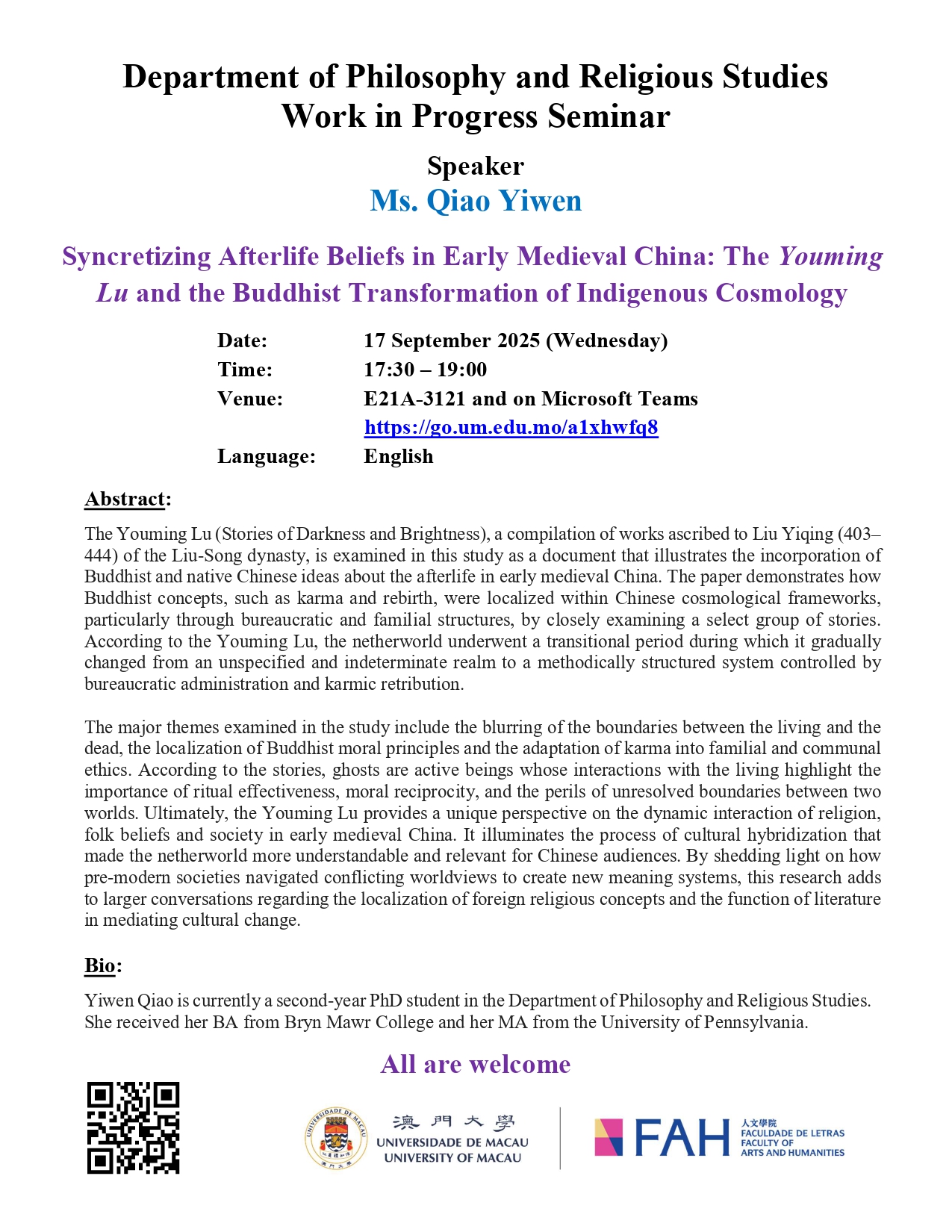

FAH/DPHIL Work-in-progress Seminar – “Syncretizing Afterlife Beliefs in Early Medieval China: The Youming Lu and the Buddhist Transformation of Indigenous Cosmology” by Ms. Qiao Yiwen
2025-09-17 @ 5:30 pm ~ 7:00 pm
Microsoft Teams: https://go.um.edu.mo/a1xhwfq8
Abstract
The Youming Lu (Stories of Darkness and Brightness), a compilation of works ascribed to Liu Yiqing (403–444) of the Liu-Song dynasty, is examined in this study as a document that illustrates the incorporation of Buddhist and native Chinese ideas about the afterlife in early medieval China. The paper demonstrates how Buddhist concepts, such as karma and rebirth, were localized within Chinese cosmological frameworks, particularly through bureaucratic and familial structures, by closely examining a select group of stories. According to the Youming Lu, the netherworld underwent a transitional period during which it gradually changed from an unspecified and indeterminate realm to a methodically structured system controlled by bureaucratic administration and karmic retribution.
The major themes examined in the study include the blurring of the boundaries between the living and the dead, the localization of Buddhist moral principles and the adaptation of karma into familial and communal ethics. According to the stories, ghosts are active beings whose interactions with the living highlight the importance of ritual effectiveness, moral reciprocity, and the perils of unresolved boundaries between two worlds. Ultimately, the Youming Lu provides a unique perspective on the dynamic interaction of religion, folk beliefs and society in early medieval China. It illuminates the process of cultural hybridization that made the netherworld more understandable and relevant for Chinese audiences. By shedding light on how pre-modern societies navigated conflicting worldviews to create new meaning systems, this research adds to larger conversations regarding the localization of foreign religious concepts and the function of literature in mediating cultural change.
Bio
Yiwen Qiao is currently a second-year PhD student in the Department of Philosophy and Religious Studies. She received her BA from Bryn Mawr College and her MA from the University of Pennsylvania.

